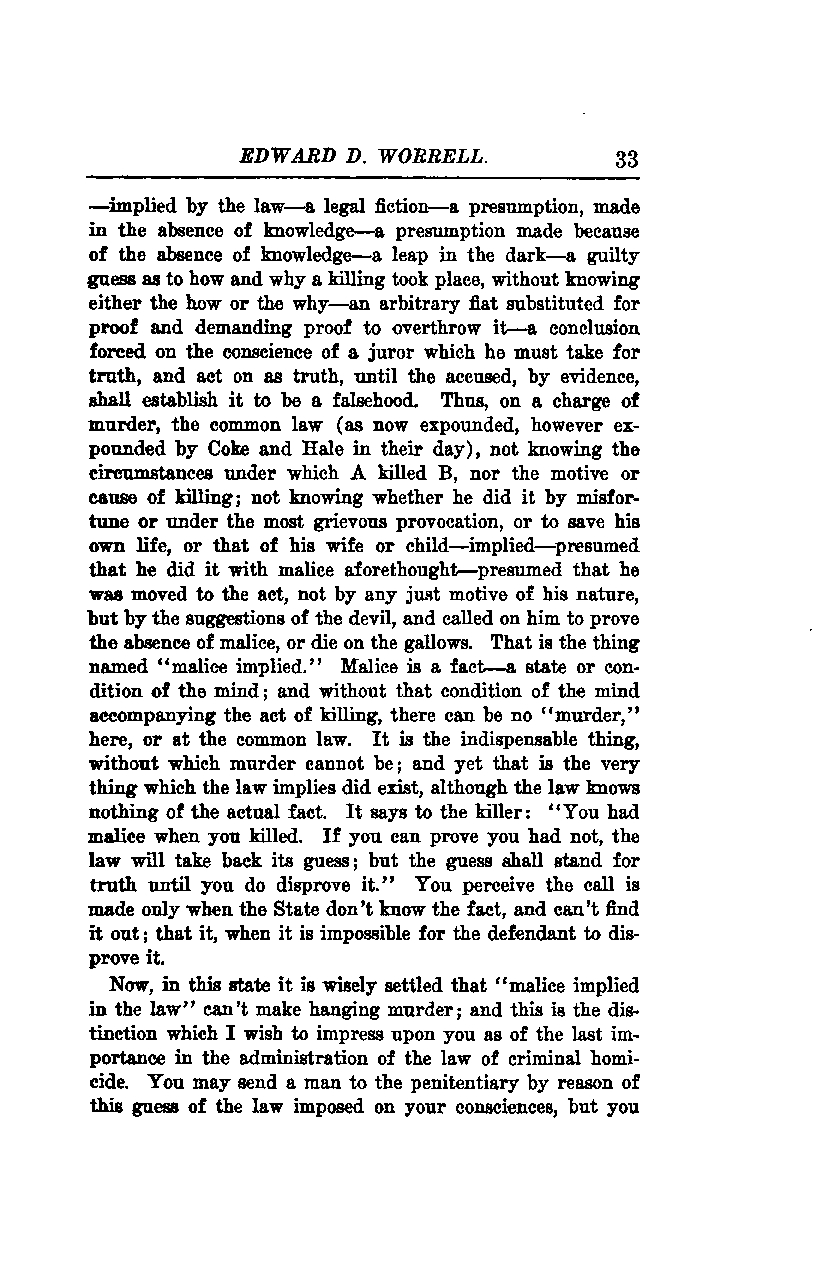
Here is the translated text as follows:
EDWARD D. WORRELL. 33
The concept of "malice implied" in law is a legal fiction—a presumption made in the absence of knowledge. It is a leap in the dark, a guilty guess as to how and why a killing took place, without knowing either the how or the why. It is an arbitrary fiat substituted for proof, demanding proof to overthrow it. It is a conclusion forced on the conscience of a juror, which he must take for truth and act on as truth until the accused, by evidence, shall establish it to be a falsehood.
Thus, on a charge of murder, the common law (as now expounded, however expounded by Coke and Hale in their day), not knowing the circumstances under which A killed B, nor the motive or cause of killing; not knowing whether he did it by misfortune or under the most grievous provocation, or to save his own life, or that of his wife or child—implied—presumed that he did it with malice aforethought. The law presumed that he was moved to the act, not by any just motive of his nature, but by the suggestions of the devil, and called on him to prove the absence of malice, or die on the gallows. That is the thing named "malice implied."
Malice is a fact—a state or condition of the mind; and without that condition of the mind accompanying the act of killing, there can be no 'murder,' here, or at the common law. It is the indispensable thing, without which murder cannot be; and yet that is the very thing which the law implies did exist, although the law knows nothing of the actual fact. It says to the killer: "You had malice when you killed. If you can prove you had not, the law will take back its guess; but the guess shall stand for truth until you do disprove it." You perceive the call is made only when the State doesn't know the fact, and can't find it out; that is, when it is impossible for the defendant to disprove it.
Now, in this state, it is wisely settled that "malice implied in the law" can't make hanging murder; and this is the distinction which I wish to impress upon you as of the last importance in the administration of the law of criminal homicide. You may send a man to the penitentiary by reason of this guess of the law imposed on your consciences, but you cannot send him to the gallows based on this presumption alone.